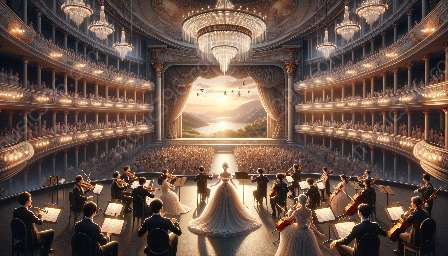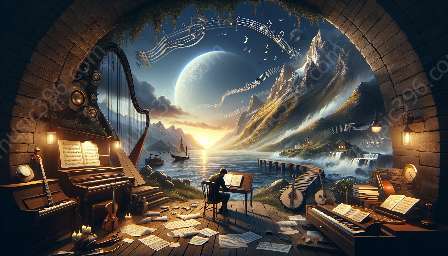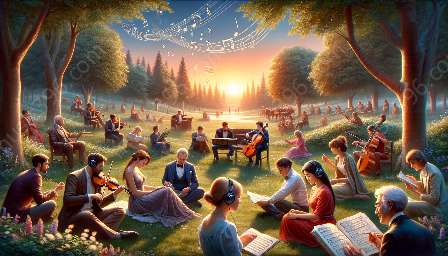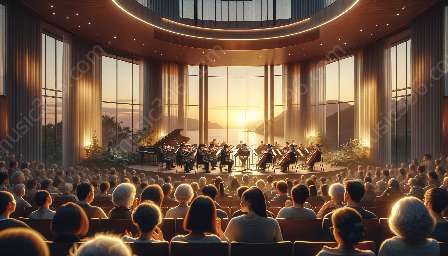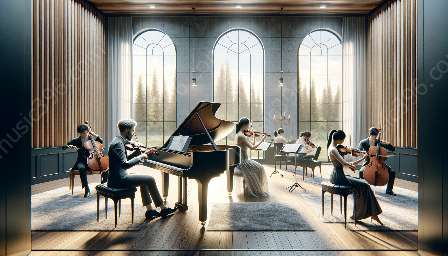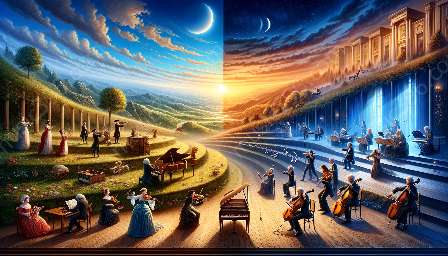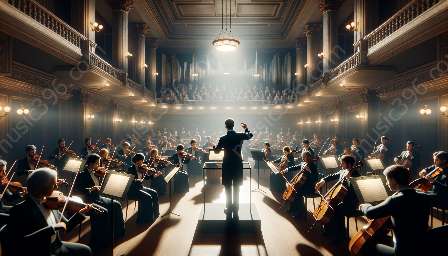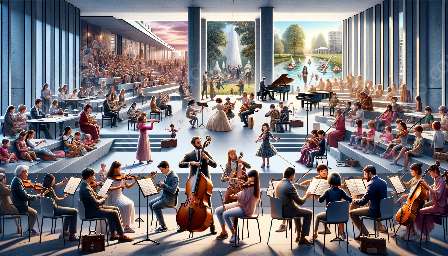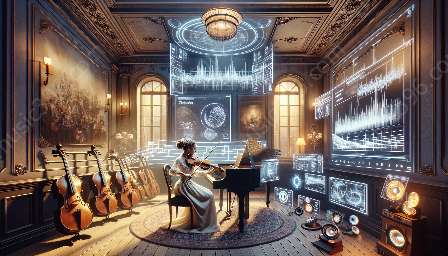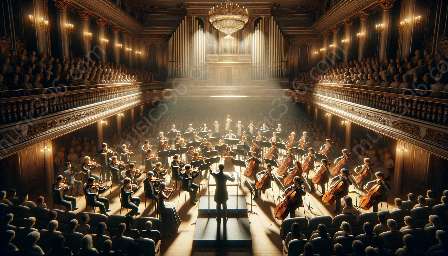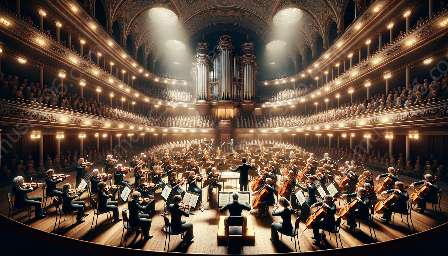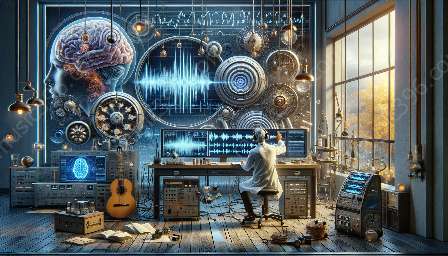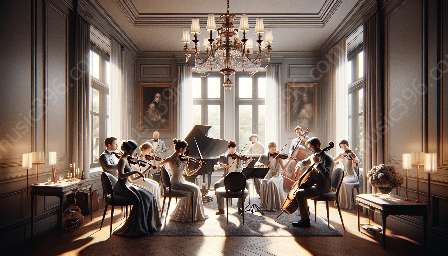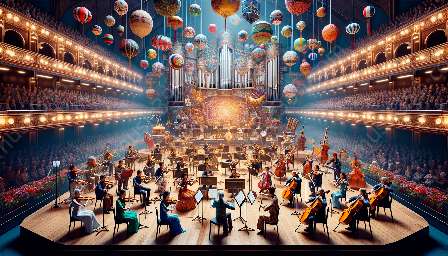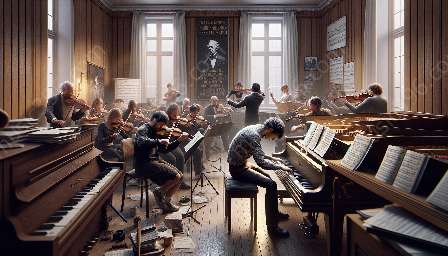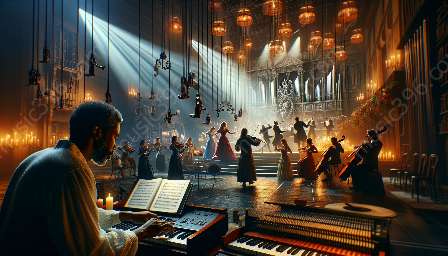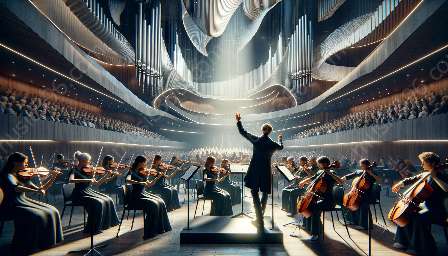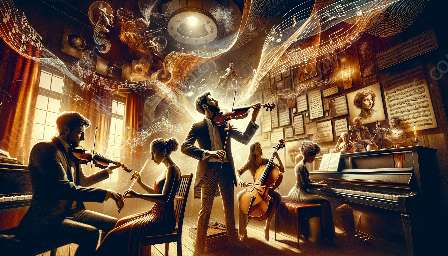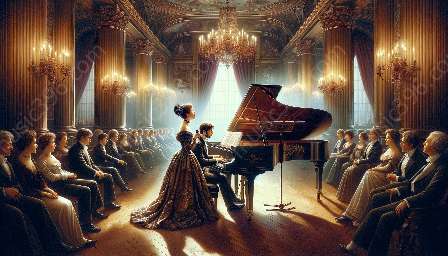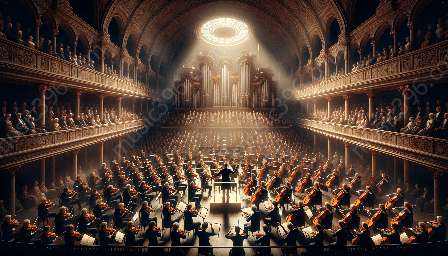Classical music has always been a reflection of the times in which it was composed, and this connection with history has had a profound impact on the emotional content of the music. From war and conflict to periods of peace and prosperity, historical events have influenced the themes, mood, and emotional resonance of classical compositions.
The Emotional Power of Classical Music
Classical music is renowned for its ability to evoke powerful emotions and stir deep-seated feelings within listeners. Whether it's the stirring melodies of a symphony or the poignant strains of a concerto, classical music has a unique capacity to express and amplify human emotions. Composers have successfully conveyed a wide range of emotional states, from profound sadness and grief to joy, celebration, and triumph.
Through the interplay of melody, harmony, rhythm, and dynamics, classical music has the potential to transport listeners to different emotional landscapes, providing solace, inspiration, and a means of connecting with their own feelings and experiences. The emotional impact of classical music can be transformative, offering a way to explore and process complex emotions.
Historical Events as Inspiration for Emotional Expression
As a reflection of the historical context in which it was created, classical music has served as a poignant and expressive medium for capturing the emotional fallout of significant historical events. From periods of social upheaval and political turmoil to moments of cultural renaissance and artistic enlightenment, the emotional reverberations of historical milestones have been indelibly etched into the fabric of classical compositions.
For example, the turbulent years of World War II deeply affected composers such as Dmitri Shostakovich, who channeled his experiences and emotions into powerful compositions like his Symphony No. 7, known as the "Leningrad Symphony." The work not only reflected the atrocities of war but also conveyed the resilience and the human spirit's triumph over adversity, capturing a wide range of emotions from despair and anguish to hope and resilience.
Similarly, the Romantic era, characterized by social and political change, saw composers such as Ludwig van Beethoven and Frederic Chopin infusing their compositions with emotional depth and intensity. Beethoven's 'Eroica' Symphony, for example, was initially dedicated to Napoleon Bonaparte, but he later revised it after Napoleon proclaimed himself Emperor, reflecting Beethoven's own emotional journey and disillusionment with the political events of his time.
Connecting with Historical Emotions Through Music
Listening to classical pieces that are rooted in historical events allows audiences to connect with the emotions and experiences of the past in a visceral and profound way. It offers a glimpse into the collective emotional landscape of a particular era, providing insight into the hopes, fears, aspirations, and challenges faced by individuals living through pivotal historical moments.
By immersing themselves in the emotional tapestry of classical compositions inspired by historical events, listeners have the opportunity to empathize with the struggles, triumphs, and resilience of previous generations, fostering a deeper understanding of human history and the enduring power of the human spirit.
The Role of Classical Music in Shaping Emotional Narratives
Classical music, through its timeless compositions, serves as a means of preserving and articulating the emotional narratives of historical events. It harnesses the universal language of emotions, transcending time and cultural boundaries, and allows people to tap into the collective emotional legacy of humanity.
By exploring classical music that resonates with historical events, individuals can develop a deeper appreciation for the emotional undercurrents that have shaped societies and civilizations throughout history. The music becomes a vehicle for empathy, compassion, and introspection, fostering a deeper connection with the emotional aspects of our shared human experience.
In Conclusion
Classical music is a poignant and evocative reflection of historical events and the emotional impact they have had on societies and individuals. From the emotionally charged works born out of periods of upheaval and conflict to the jubilant compositions celebrating moments of triumph and renewal, classical music weaves a rich tapestry of human emotions throughout the annals of history.
Exploring the intersection of historical events and classical compositions provides valuable insights into the emotional resonance of the music and its role in shaping and expressing the human experience. It offers an engaging and profound way to connect with the emotions, aspirations, and struggles of past generations, fostering a deep appreciation for the enduring power of classical music to convey the timeless emotions that bind us across time and space.

